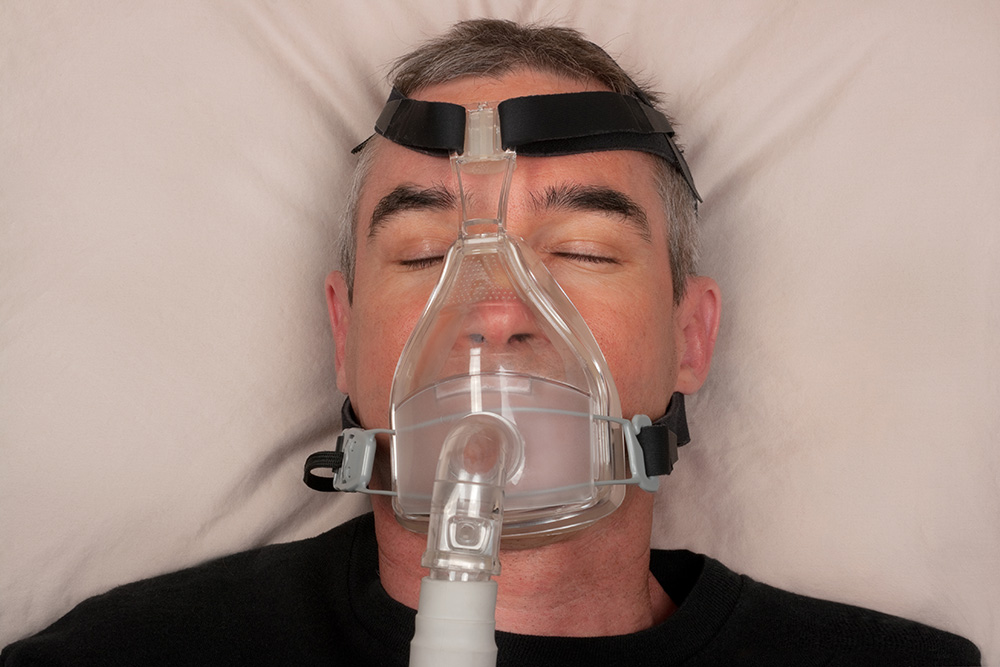Sleep Apnea Treatment

If you often feel drowsy during the day, wake up feeling breathless at night, or have been told that you snore, you might have sleep apnea, a sleep disorder that affects millions of Americans.
What Is Sleep Apnea?
Sleep apnea is a sleep disorder with which a person’s breathing stops and starts multiple times while sleeping. In fact, people with sleep apnea stop breathing an average of 20 to 30 times per hour.
When a person’s breathing stops, the lack of oxygen alerts the brain, and the body wakes to restart breathing. This frequent cycle of sleeping and waking repeatedly throughout the night puts stress on the body and disrupts sleep, significantly reducing the quality of rest.
Signs and Symptoms of Sleep Apnea
The following signs and symptoms can indicate that you are suffering from sleep apnea:
- Snoring
- Choking or snorting during the night
- Gasping for air during the night
- Insomnia (inability to stay asleep)
- Daytime drowsiness
- Hypersomnia (unintentionally falling asleep during the day)
- Waking up frequently with headaches
- Often waking up with a sore throat
- Children: Symptoms consistent with ADD, and/or behavioral issues
If you experience any of the symptoms, we strongly encourage you to schedule an appointment.
What Causes Sleep Apnea
Sleep apnea has various underlying causes, which vary depending on the type of sleep apnea a person is diagnosed with.
Central Sleep Apnea
Central sleep apnea is a nervous system disorder that results in the cessation or blockages of signals coming from the brain to the nerves that control a person’s airways, resulting in the cessation of breathing.
Obstructive Sleep Apnea
Obstructive sleep apnea is the most common type of sleep apnea. It is caused by the obstruction of a person’s airways that occurs when the soft tissues in the neck and throat collapse during sleep. Contributing factors may include things such as large tonsils or adenoids, or a mandible (jaw) that is small and/or positioned too far back.
Obstructive sleep apnea is more common in overweight or obese individuals, but anyone at any weight can suffer from obstructive sleep apnea.
Complex Sleep Apnea
Complex sleep apnea is caused by a combination of nervous system issues and the physical obstruction of the airways.
The Dangers of Untreated Sleep Apnea
When left untreated, sleep apnea can lead to various health and safety risks. Consecutive nights of low-quality sleep can make you a danger on the road or prone to accidents at work. In children, untreated sleep apnea can lead to poor school performance, behavioral issues, and symptoms that mimic ADD (Attention Deficit Disorder).
When you repeatedly stop breathing in your sleep, you also restrict the oxygen levels in your body, which puts stress on your entire system. This stress can increase the risk of developing heart disease or worsen existing heart disease. Additionally, it can put you at an increased risk of developing metabolic syndrome, type 2 diabetes, liver problems, and more. In children, untreated sleep apnea can lead to learning, growth, and heart problems.
Plus, don’t forget the stress and sleep disruptions that your snoring is likely causing for your significant other, potentially putting them at risk too.
Sleep Apnea Treatment With Our Dentists in Bucyrus
Sleep apnea treatment varies depending on the underlying cause of the condition. Sometimes treatment requires a CPAP machine or even surgery. In other cases, sleep apnea can be treated with a simple oral device.
If you suspect you might have sleep apnea, we encourage you to contact our office to schedule a consultation with Dr. Nagy. We can talk with you about your symptoms and if necessary, arrange for a home sleep study with our take-home monitor. The results from this monitor are read by an MD sleep specialist to determine a diagnosis, which will help us determine whether any treatment is needed and/or if a referral to an additional specialist (such as an “ENT” Ear, Nose, and Throat Specialist) may be needed.
We welcome you to contact Oakwood Dental today to learn more, schedule an appointment, or request a sleep specialist referral.
